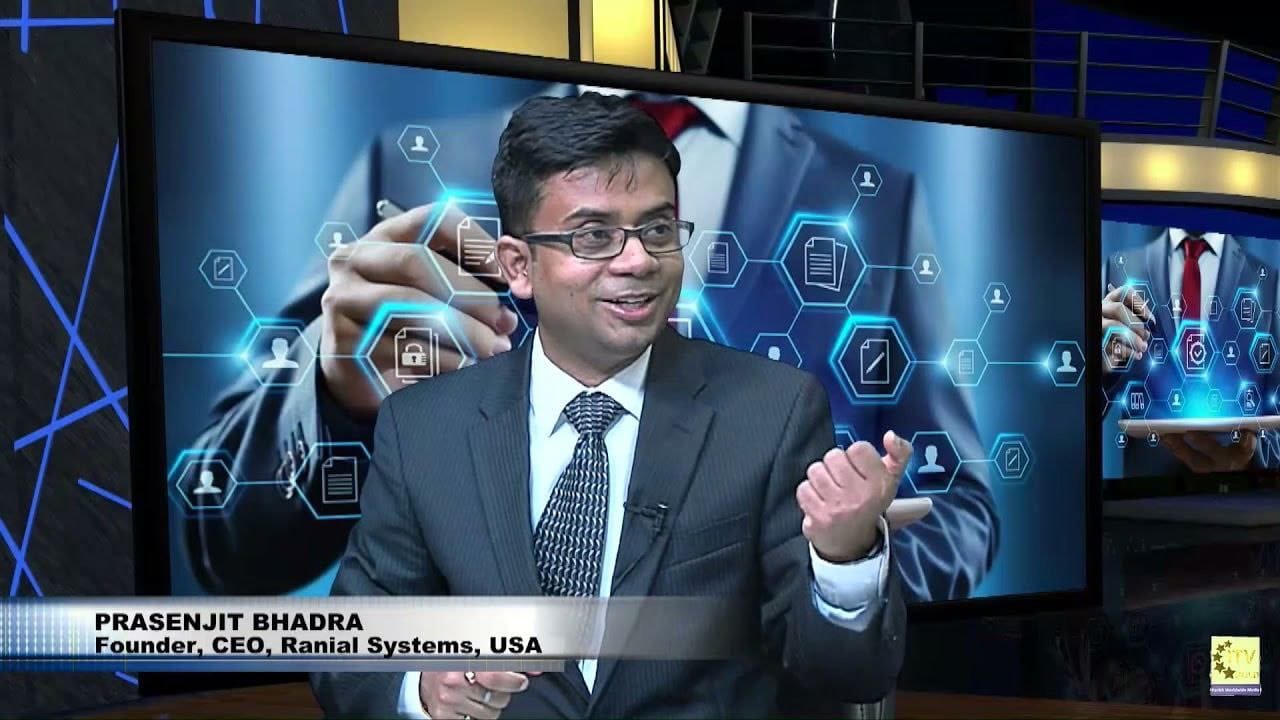
The technological advancements of the world at present are beyond what one might have expected a decade ago. Today, there is blockchain technology, reshaping the dynamics of how data transfer and storage works. But there is more to the changes than blockchain technology, offering more advancements and success stories to the global space.
In focus here are the Machine to Machine (M2M) or Internet of Things (IoT), and its combination with cognitive artificial intelligence (AI). IoT aims to bring together existing technologies to improve economic, social, infrastructural, and ecological paradigms. Ranial Systems is a platform dedicated to advancing IoT, and cognitive AI can disrupt the global space. The firm rose from the innovative mind of Prasenjit Bhadra, bringing more convenient Machine to Machine (M2M) communication.
About Ranial Systems
To understand the mission of Ranial Systems, it would be wise to look into how the IoT is connected to the current world. According to Ranial Systems founder Prasenjit Bhadra in an interview on Wide Angle, the world we live in is connected with the exchange of data through the internet, willingly or unwillingly. He explains the internet of things as the connection of all technologies in the world feeding data to the internet, hence, connecting their infrastructure.
On the other hand, cognitive IoT entails realizing this connection in automated systems. Furthermore, it includes understanding data collection, how data works, and how it delivers the inbuilt message to the world. Ranial Systems stands to advance these processes, introducing more functionality through runtime functions.
As such, situational awareness, remote monitoring, declined cybersecurity issues, AI autonomy, unlimited bandwidth, seamless data exchange, and more are among the advantages of what Ranial offers. The platform stands as a Software as a Service ecosystem, focused on building industrial asset management, smart city, autonomous grid operations and sustainable energy distribution.
While web 3.0 and cloud computing have been the buzz in the FinTech industry, Ranial Systems is widening the scope into a 4.0 era by introducing distributed edge computing. Likewise, Mr. Prasenjit's experience and innovation in the industry for two decades has brought notable changes to multiple platforms worldwide. Being an eminent scholar and technology evangelist, He led noteworthy innovations in industrial automation, RFID, enterprise mobility, and smart enterprise systems. In his words, the architectural foundation of traditional M2M/ IoT systems is heavily dependent on process automation and analytics built on distant cloud. Hence most common IoT solutions fail to realize the context of any data or event captured and represent insights of historical significance. His invention has established Ranial as the global leader in leveraging embedded intelligence on the edge to incrementally learn the changing physical environment and enable autonomous functions in real-time. Ranial envisions that the next generation IoT systems would transform the passive enterprise systems into a more reactive and autonomous digital footprint in the era of Industry 4.0.
Taking Advantage of Changing Data Exchange Systems
Mr. Prasenjit describes autonomous systems as systems with the ability to learn with the changes happening in the data exchange world. Therefore, the Ranial Systems vision maintains its significance by adapting to a changing world using cognitive AI. Moreover, it perfects machine-to-machine communication, necessary for the efficient building of successful IoT ecosystems.
While recognizing the shortcomings of existing AI and machine learning capabilities leveraging the cloud computing or multiclause infrastructure, Ranial Systems hopes to bridge the gap using runtime. Its runtime capabilities transcend the limitations of current hardware and software functions, creating more opportunities for real-world use cases. Additionally, it will solve the issues of interoperability, network scalability, and autonomous system operations.
Mr. Prasenjit is well-versed with the neuro-sensory capabilities of the human mind, employing the same concept in machines for better outcomes. Likewise, the machines imitate this sensory pathway to become autonomous, growing with every experience in an ecosystem. This factor creates a better environment for humans to utilize the full potential of available technologies while ensuring constant adaptation to shifting paradigms.
In the long run, the platform's objectives align with building smart cities, unprecedented scalability, smart grid monitoring, smart manufacturing systems, smart defense systems, among others.
Disrupting Different Global Sectors
Mr. Prasenjit has collaborated with different global companies, including IBM, Broadridge, Visa, UHG, and more. During his time in the industry, he has garnered several awards, including CTO of the year and best CEO driving technological advancements.
In one of his interviews with a blog site, the Ranial Systems CEO expressed that it is not about learning only but implementing these ideas in building better human-machine interactions. He has also carried out extensive research to bring this vision to light, studying different scenarios, writing research papers, and explaining to the world the process he is putting in play.
Ranial Systems is focused on improving technological infrastructure through cognitive pathways and increasing the value drawn from different businesses. Their target lies in the healthcare industry through remote patient monitoring, manufacturing, autonomous grid operations, green technology, and smart asset management solutions.
Combined cognitive AI/ IoT systems will have a chance to execute available information while learning the process of data collection. Furthermore, any change is an opportunity for machines to learn and adapt, similar to the human sensory system. It avails a grace period to deal with any upcoming issues in or close to real-time in all the sectors.
While performing these actions, Ranial Systems is finding ways to decrease the carbon footprint its systems leave, enabling a green tech environment. It could also benefit the steps organizations are taking against climate change, offering remote monitoring of weather conditions. In turn, involved parties can prepare beforehand to deal with natural disasters and slowly solve existing environmental sustainability pain points. Moreover, Ranial is striving for 'zero Downtime' of industrial assets and autonomous quality control by introducing real-time operational intelligence and predictive maintenance at the point of action. The platform has also redefined the era of smart city and smart grid surveillance by implementing interpretability across the ubiquitous automation infrastructure.
The Endgame
Ranial Systems is taking over the cleantech and fintech spaces by bringing something otherwise unimaginable to the table. Many would have believed in a slower achievement of what the platform is offering in this era. However, Prasenjit and his team are proving the world's true potential of digital transformation through the emerging trends of M2M/ IoT, edge computing, and AI.
It will not only solve the pain points clouding current technologies but advance what we used to know into something bigger and better through IoT, M2M, RFID, wireless devices and sensors, cognitive AI, to mention but a few. Moreover, Ranial Systems aims to achieve a clean energy environment beneficial to the healthy progression of ecological systems. Mr. Prasenjit and his team are committed to introducing disrupting applications to fight ageist climate change, help partners to innovate and scale the next-generation clean energy solutions across the globe. Safe to say, the platform is making the impossible possible, and the global community is yet to see more.
* This is a contributed article and this content does not necessarily represent the views of techtimes.com





